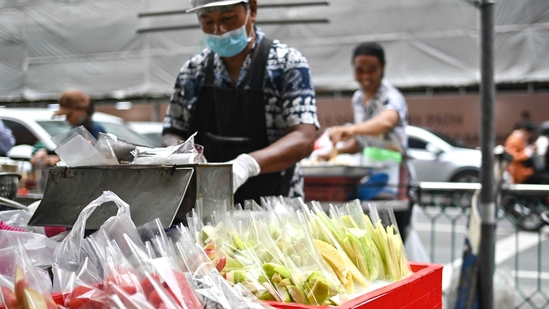A new way to recycle plastic is here

Much plastic waste is soiled and composed of several different layers, making it too complex for the usual recycling method.
Plastic is ubiquitous. Around 1m plastic water bottles are sold every minute and 5trn plastic bags are used around the world every year, according to the un’s Environment Programme. Half of all production, which is growing faster than that of any other material, is designed for single-use applications. The world’s annual output of over 400m tonnes is set to reach 1,100m by 2050. Mountains of waste mean pressure from both the public and regulators to improve recycling.

There is a problem, though. Much plastic waste is soiled and composed of several different layers, making it too complex for the usual recycling method of chopping it into bits before remoulding it. Despite efforts to increase recycling rates, more than 90% of plastic ends up incinerated, in landfills or dumped in nature. ln response, large consumer-goods companies such as Nestlé, PepsiCo and Procter & Gamble are exploring new ways of recycling to transform waste back into feedstocks from which new plastic can be made.
The interest of these firms is understandable because much of their packaging is unsuitable for existing recycling techniques. If they can buy plastic made from hard-to-recycle waste, they can wash their hands, says Philippe von Stauffenberg, boss of Greenback Recycling Technologies, which opened an advanced-recycling plant with Nestlé, in Mexico in 2023. “We are their Catholic church. They are the sinners and we sell them absolution.”
Other companies are getting in on the act. Plastic Energy, a British firm, already supplies recycled feedstocks for packaging in Europe, including for PepsiCo’s SunBites snacks and Unilever’s Magnum ice-cream tubs. But what seems like a boon for the environment is, in fact, controversial. Environmentalists denounce it as a polluting way to keep using plastic. In September California sued ExxonMobil, an oil major, in part for “deceiving” the public about the technology’s ability to solve the plastic-waste crisis.
The problem is the method of recycling. One of the most common approaches, pyrolysis, involves heating waste until it breaks down chemically. The output is oil and synthetic gas, which is recaptured to power the recycling plants. This and other processes also release toxic waste because of hazardous substances in the plastic, says Veena Singla, an environmental-health scientist at Columbia University in New York. Nor is it clear that recycling results in fewer emissions than manufacturing virgin plastic.
Policymakers and regulators are therefore sceptical of the new approach, says James Kennedy, an analyst at idTechEx, a market-intelligence firm. Perhaps the stickiest point is labelling, which can determine whether a company meets recycling requirements or enjoys tax breaks. The oil produced by advanced recycling must be heavily diluted with “fresh” crude before it can be turned into plastic. That means that, say, a batch of hummus tubs might contain recycled oil while another might have none. Yet if 10% of feedstocks overall are from recycled sources, the industry wants to say that 10% of the tubs are 100% recycled, even if some contain no recycled material at all—a form of accounting they call “mass balance”.
So far, America’s Environmental Protection Agency has rejected the approach, calling it “deceptive”. There is similar scepticism among European environmental groups such as Zero Waste Europe, which say the recycled element is so low that it hardly counts as recycling at all.
Such resistance could jeopardise a fledgling industry, which needs lots of investment to build plants and infrastructure to get hold of waste. And there is a need for advanced recycling, argues Stuart Coles at the University of Warwick. Ultimately, he says, “we want to keep as much material as we can within society.” That means reusing where possible, but it also means encouraging recycling.
There are signs that his argument may be winning. In October Britain accepted a version of the mass-balance approach, and while the eu is still mulling it, most member states appear to be in favour. Innovation might yet make processes more efficient and kinder on the environment. Mura Technology, a British company with a plant in Teesside, claims its hydrothermal technology produces better yields and less carbon dioxide than pyrolysis. Samsara Eco, an Australian firm, says its technology, which uses enzymes to break down the plastic waste, could sidestep the need for adding new oil altogether. Such advances may help keep plastic in circulation rather than consigning it to the rubbish tip.
To stay on top of the biggest stories in business and technology, sign up to the Bottom Line, our weekly subscriber-only newsletter.
All Access.
One Subscription.
Get 360° coverage—from daily headlines
to 100 year archives.



HT App & Website







